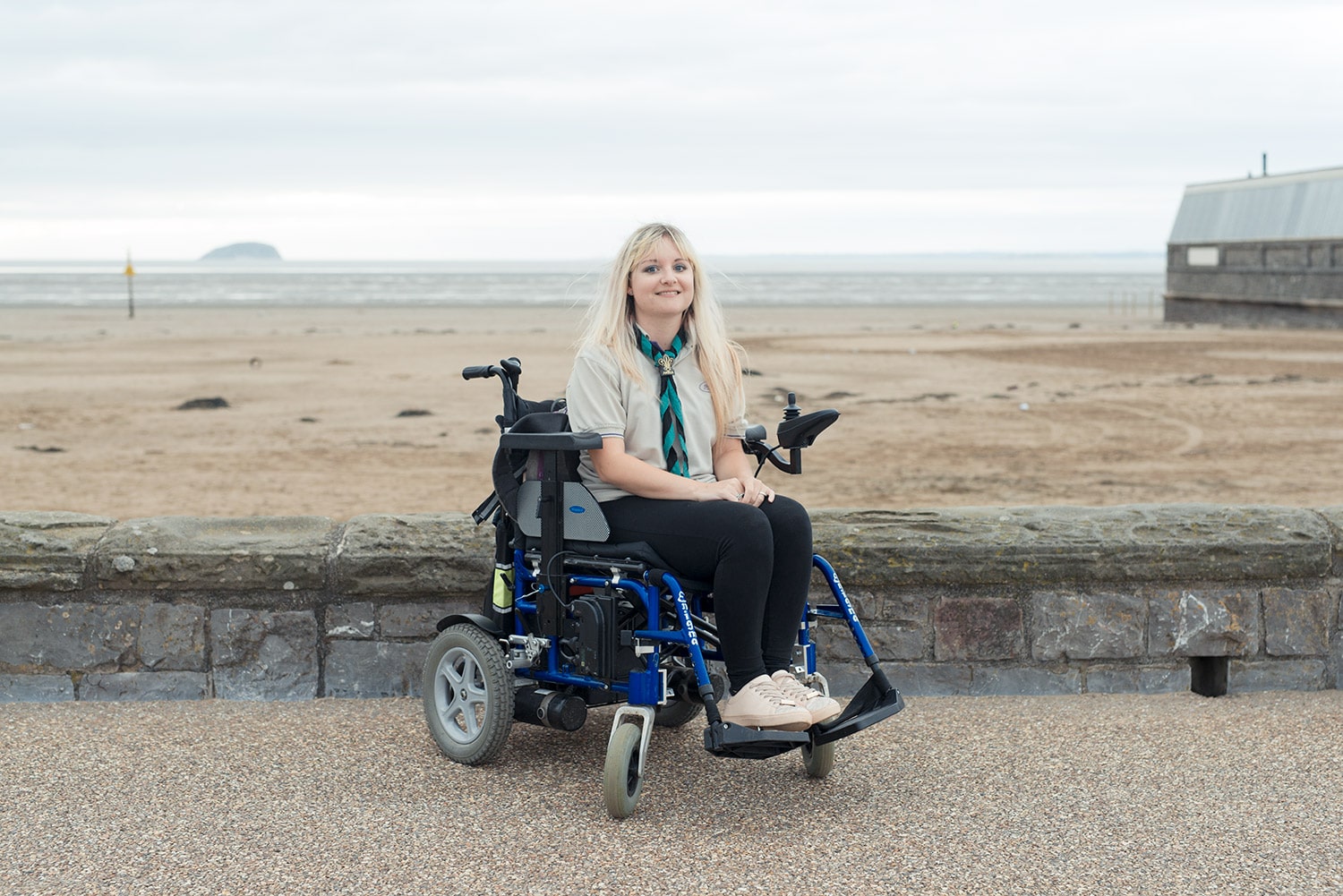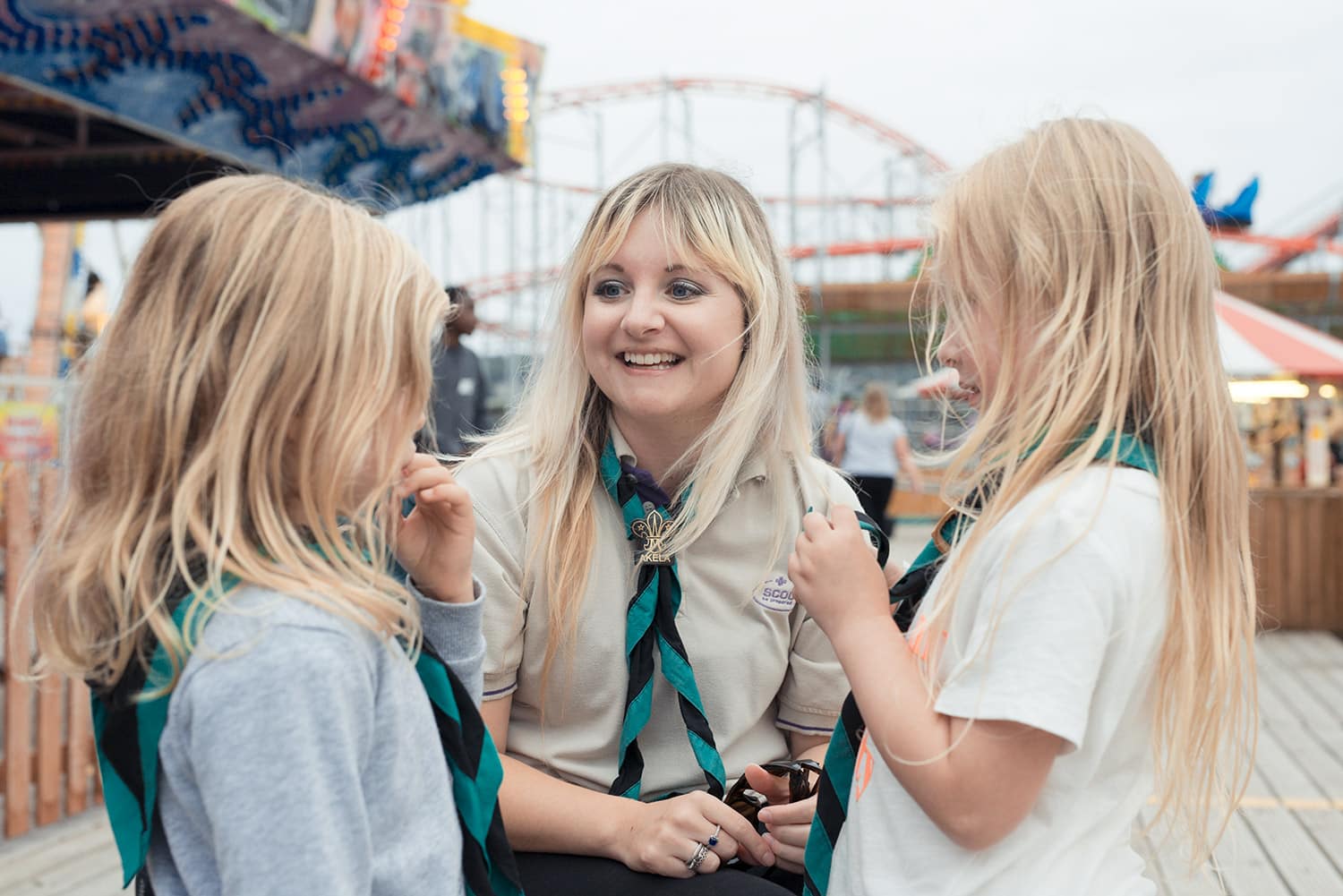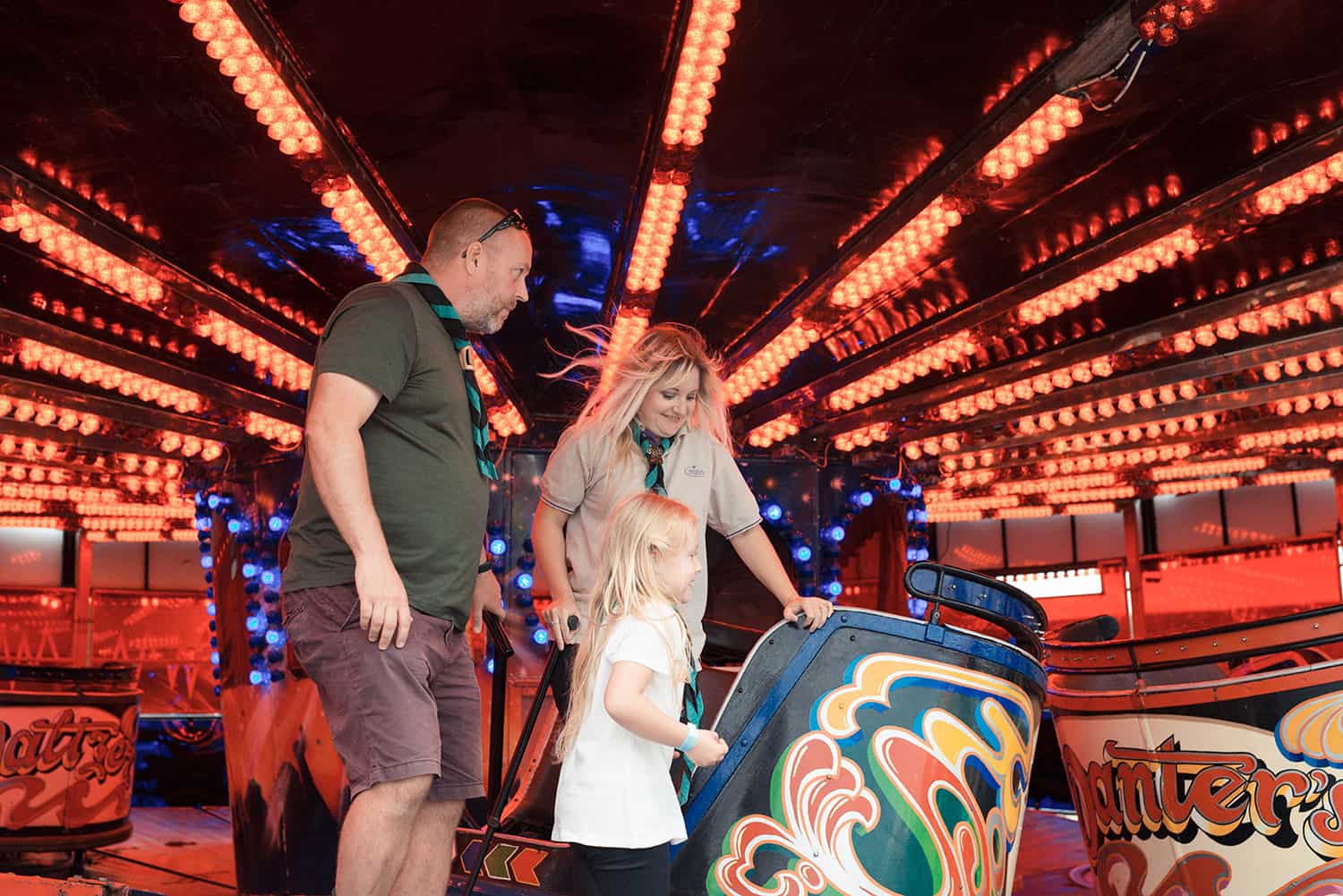Lois’ story

I think the main benefit has been gaining confidence and building new friendships.
Lois Hill, Cub volunteer
Lois Hill’s a Cub volunteer in Weston-super-Mare. Though she has likely always had a condition called Ehlers-Danlos Syndrome (EDS), she only became symptomatic after the birth of her first child.
EDS can affect different people in different ways. For some, the condition is relatively mild, while for others their symptoms can be disabling. In Lois’ case, it causes her to experience joint pain, fatigue and problems with several of her internal organs, which can result in her collapsing unexpectedly. She’s been using a wheelchair for six years, and has been a Scout for one year.
Despite using the chair, Lois is an active leader, and the Group tries to get outside as much as they can. Their favourite activities include hiking, walking on the beach, and ‘hosting big barbeques’.

People often have a lack of understanding about additional needs when making adjustments. Are there any misconceptions people have about your condition or ability to participate?
Generally, I’ve found everyone to be very welcoming, but some parents are a bit surprised when they first see me, purely because they’re probably not expecting to see a leader in a wheelchair. I’m sure some even felt a bit apprehensive about it at first. They might worry about my ability to look after their children because of my additional needs.
But once they’ve spent time with me, they realise that’s not the case, and they don’t think anything of it. I’ve got the support of my husband, who joins me at Scouts and is also my carer. Although I do most of the work myself, he can support me in my role, which is a big help.
Are there any new skills you’ve gained at Scouts that you perhaps wouldn’t have otherwise?
I think the main benefit has been gaining confidence and building new friendships. I can’t work, because my condition means I can collapse at any time. I didn’t get many opportunities to meet new people before I joined Scouts. I’m more active since I became a volunteer. It forces you to get out there and do things, doesn’t it? My first camp was with the whole District. There were about 600 people there, so I jumped into the deep end pretty quickly. Generally, we try to get outside and be social as much as we can.

Are the young people in your Group aware of your condition and how it affects you? How do you talk to them about it?
They are aware, but we don’t often need to talk about it. Something I find really lovely is that the Beavers, Cubs and Scouts have never even questioned me or my condition. They understand I have good days and bad days and have only ever known me as I am. They just see me as me.
Do any of the young people in the Group have their own additional needs?
Although we don’t have any young people with additional physical needs in the Group, there are some young people who have non-physical additional needs, such as ADHD and Autism. While they’re learning about my needs and adapting to them, I’m also adapting to theirs. The changes I make tend to be quite simple; things like making sure that young people who find it difficult to enjoy unstructured time always have something to do, and get extra reassurance whenever we plan to try new and unexpected things. We get to learn together.
Do you need to adapt what you do at Scouts often?
The days aren’t always great for me but the evenings tend to be better, so it’s nice to have the routine of going to Scouts one night a week. It’s the right amount of challenge. Being a volunteer keeps me busy preparing Programme activities during the evenings in-between, and it’s a nice regular activity we can enjoy as a family.
My son is in my Cub Group and my daughter is a Beaver.
Generally, I’m able to participate in most Scout activities, but there will be times when I need extra support. I had one episode on camp when I felt unwell and had to go and lie down for a bit, but the other leaders immediately gathered around and helped.
You don’t always get that same sense of connection in other group situations. The people I’ve met through the Scouts are very understanding and quick to jump in if I need them to share the load with me. Knowing I can rely on them is great.
